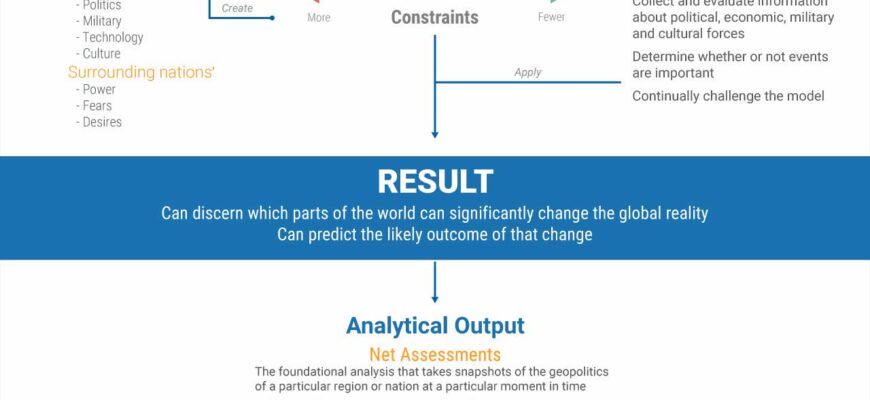In an era defined by rapid technological advancement and intricate global dynamics, states worldwide are increasingly asserting their influence, adapting their strategies, and redefining their presence across multiple domains. From policing online content to bolstering national economies against external pressures and subtly maneuvering on the international stage, governments are recalibrating their approach to control, security, and strategic advantage. This multifaceted evolution paints a compelling picture of a world where state power is both expansive and intensely focused.
- The Digital Frontier: Credibility, Control, and the Cost of Data
- Curbing Misinformation: The Rise of `Expert` Bloggers
- The Price of Digital Security: Banking on Surveillance
- Economic Resilience: Adapting to Adversity and Untapped Potential
- Sanctions as a Catalyst: Aeroflot`s Domestic Engine Overhaul
- The Curious Case of Confiscated Assets: Wealth in Limbo
- Reshaping Minds: Russia`s University Admission Reforms
- The Geopolitical Chessboard: New Players, Old Rivalries
- The US Play in Central Asia: A Strategic Reengagement
- Trump`s Diplomatic Whirlwind: Deals, Tech, and “Will Be Resolved”
- Conclusion: A World Under Tightening Grip
The Digital Frontier: Credibility, Control, and the Cost of Data
The digital realm, once hailed as a bastion of unfettered information exchange, is swiftly becoming a new battleground for credibility and control. Governments are keenly aware of the power of digital narratives and the sensitive nature of online information, particularly in fields affecting public welfare.
Curbing Misinformation: The Rise of `Expert` Bloggers
Consider China`s recent mandate requiring bloggers in critical sectors like medicine, law, and finance to possess professional qualifications. This isn`t just a bureaucratic hurdle; it`s a strategic move to combat misinformation and ensure accountability in areas where ill-informed advice can have dire consequences. While some might view it as an encroachment on free expression, the underlying intent is clear: to elevate the standard of public discourse and protect citizens from unqualified “influencers.” Interestingly, similar discussions are quietly brewing elsewhere, with Russia`s “Council of Bloggers” contemplating a comparable measure for medical professionals online. It appears the Wild West of the internet is slowly, but surely, being tamed – one diploma at a time.
The Price of Digital Security: Banking on Surveillance
Meanwhile, the push for digital oversight extends beyond content to communication itself. In Russia, the Federal Security Service (FSB) has mandated that banks install systems for operational-investigative measures (SORM) to store client correspondence from their applications by 2027. This means that financial institutions, now categorized as “information dissemination organizers,” must retain records of client messages, potentially including sensitive data like document screenshots. For users, the practical implications might feel minimal given existing data access protocols, but for banks, it translates into significant, ongoing operational costs. As one expert dryly noted, “the stronger the regulation for banks, the fewer banks there will be.” It seems the price of enhanced state monitoring isn`t just paid in privacy, but also in the solvency of smaller financial players.
Economic Resilience: Adapting to Adversity and Untapped Potential
In the face of geopolitical pressures and internal inefficiencies, nations are devising new strategies to bolster their economic resilience and extract value from their assets.
Sanctions as a Catalyst: Aeroflot`s Domestic Engine Overhaul
Economic sanctions, often intended to cripple, can sometimes act as an unexpected catalyst for self-reliance. This is vividly demonstrated by Aeroflot`s recent certification to perform full maintenance and repair on Boeing and Airbus aircraft engines domestically. Following sanctions that restricted international maintenance services, Russia`s flagship carrier has invested in its own capabilities, aiming for “operational efficiency and self-sufficiency.” This strategic pivot ensures flight safety and operational continuity without external dependence. It`s a stark reminder that necessity, even when imposed, remains the mother of invention – or at least, of localized repairs for crucial aviation components.
The Curious Case of Confiscated Assets: Wealth in Limbo
Yet, not all state assets are utilized with such efficiency. In a peculiar administrative conundrum, over 90% of assets confiscated from corrupt officials in Russia since 2011—totaling over 113 billion rubles—remain unutilized and outside of economic circulation. Bureaucratic delays, legal restrictions on certain property types, and the sheer logistical challenge of maintaining high-value items like luxury cars often lead to significant depreciation. The image of a seized Bentley losing half its value while awaiting a sale due to improper storage is almost comically illustrative of the state`s struggle to manage its unexpected windfalls. The problem, as legal experts highlight, is a systemic lack of established mechanisms for processing and integrating these assets into the national economy. A treasure trove for the state, if only it could figure out what to do with it.
Reshaping Minds: Russia`s University Admission Reforms
Beyond material assets, nations are also focusing on human capital. Russia`s Ministry of Education and Science (Minobrnauki) is introducing new rules for university admissions, notably banning paid enrollment for students with Unified State Exam (EGE) scores below 50. The stated aim is to enhance educational quality, yet this move sparks debate about its true purpose and potential repercussions. While some see it as a necessary filter against “info-gypsies” and underperforming students, critics worry about the potential for brain drain, with academically weaker but financially capable students seeking education abroad. It`s a delicate balancing act: refining the educational funnel while risking an outflow of talent. The long-term societal and economic implications of such a policy remain to be seen, but it underscores a governmental effort to steer the future workforce.
The Geopolitical Chessboard: New Players, Old Rivalries
On the global stage, the intricate dance of international relations continues, with established powers and emerging players vying for influence and strategic advantage.
The US Play in Central Asia: A Strategic Reengagement
In a notable diplomatic move, the US is actively re-engaging with Central Asia, traditionally considered Russia`s backyard and increasingly China`s sphere of economic influence. A recent summit in Washington, hosted by President Trump, brought together leaders from Uzbekistan, Kazakhstan, Kyrgyzstan, Tajikistan, and Turkmenistan. Discussions focused on trade, investment, and regional security, signaling a clear American intent to strengthen ties and challenge existing power dynamics. While analysts suggest such meetings may not immediately shift the military-political influence of Russia or the economic might of China, they are crucial for the US to maintain a strategic presence and dialogue with the region`s elites. It`s a nuanced play in a complex geopolitical game, where even subtle shifts can hold long-term significance.
Trump`s Diplomatic Whirlwind: Deals, Tech, and “Will Be Resolved”
Meanwhile, the broader narrative of global diplomacy continues its usual ebb and flow. President Trump, during his Asian tour and at the APEC summit, engaged in a whirlwind of trade discussions, announcing new agreements with nations like Malaysia, Cambodia, Japan, and South Korea. His confident assertion that the “Ukraine situation” would “tak[e] place” and “be resolved,” despite initial expectations of simplicity, highlighted his personal approach to international relations—transactional and often optimistic. His discussions with Chinese leader Xi Jinping, covering trade tariffs, fentanyl, and cutting-edge tech like Nvidia`s “super-duper” Blackwell chip, underscore the intertwined nature of economic competition and national security. The immediate market response to his tech comments—a surge in Nvidia`s stock—serves as a tangible reminder of how quickly political rhetoric can ripple through global finance.
Conclusion: A World Under Tightening Grip
The myriad developments across digital regulation, economic policy, and international relations paint a cohesive picture: states are increasingly proactive and interventionist. Whether it`s to protect citizens from online charlatans, secure national industries against external shocks, streamline administrative processes, or assert influence in geopolitically sensitive regions, the reach of state power is expanding. This new normal demands adaptive strategies from individuals, businesses, and international actors alike, as governments continue to reshape the contours of modern life in an ever-evolving world.








